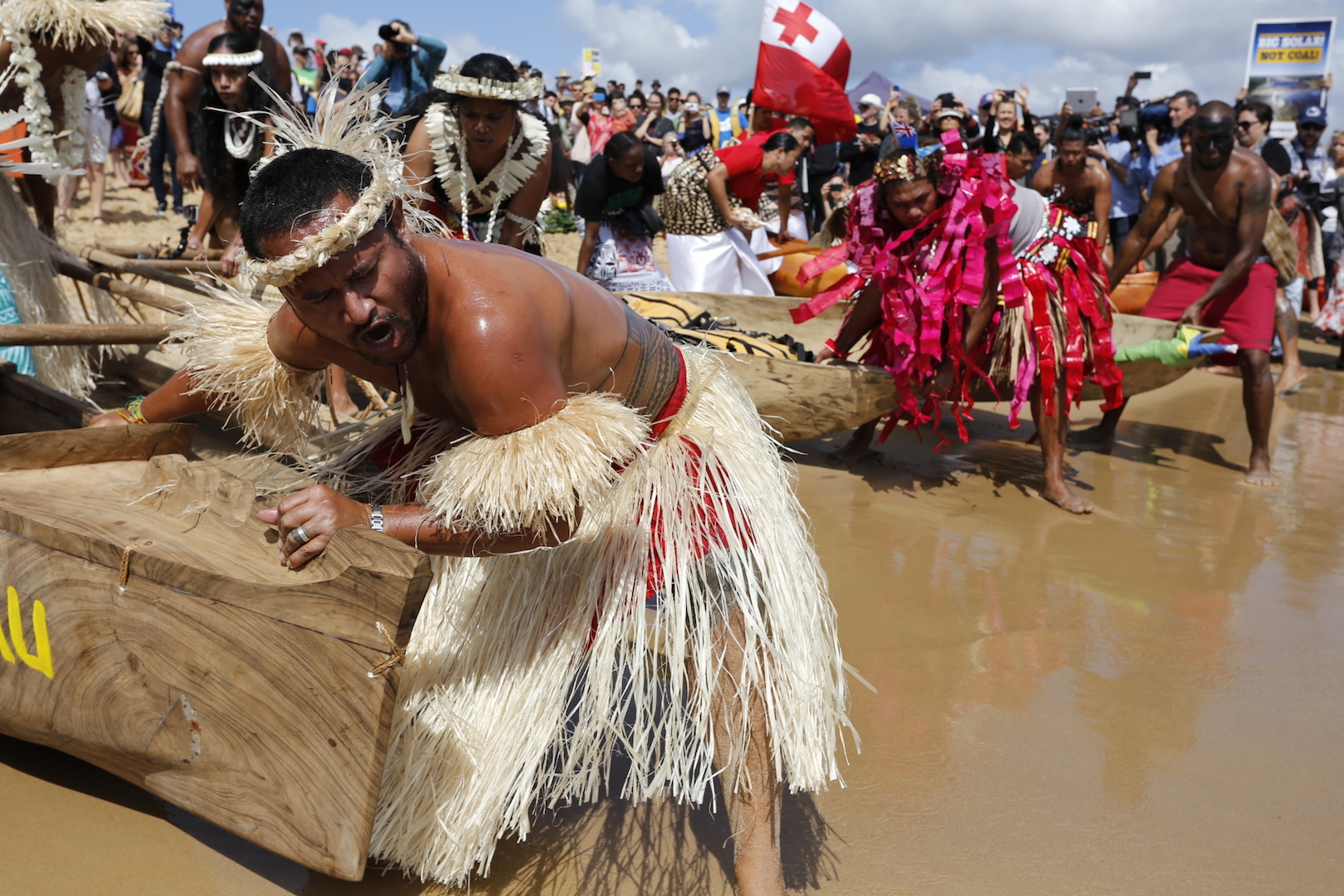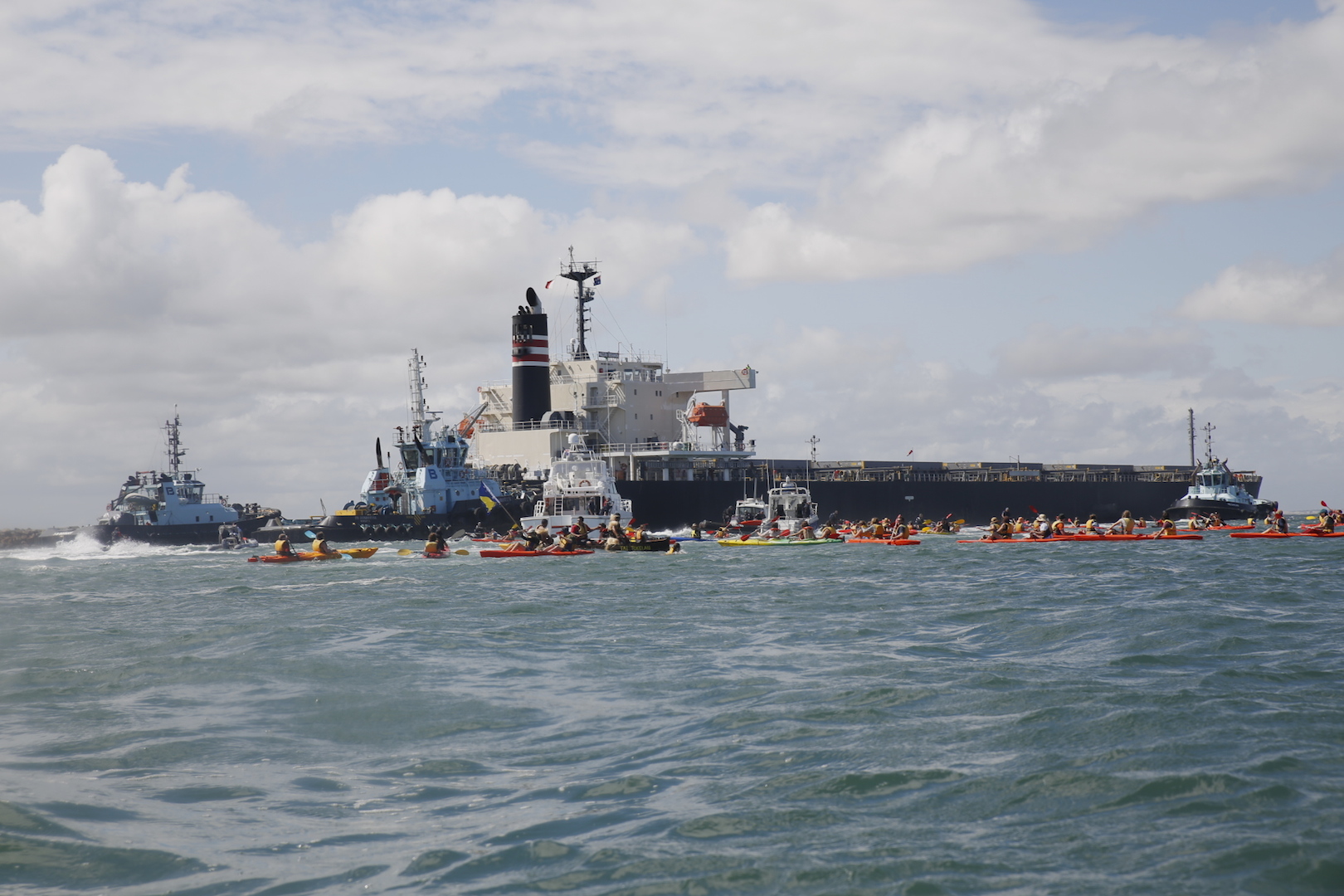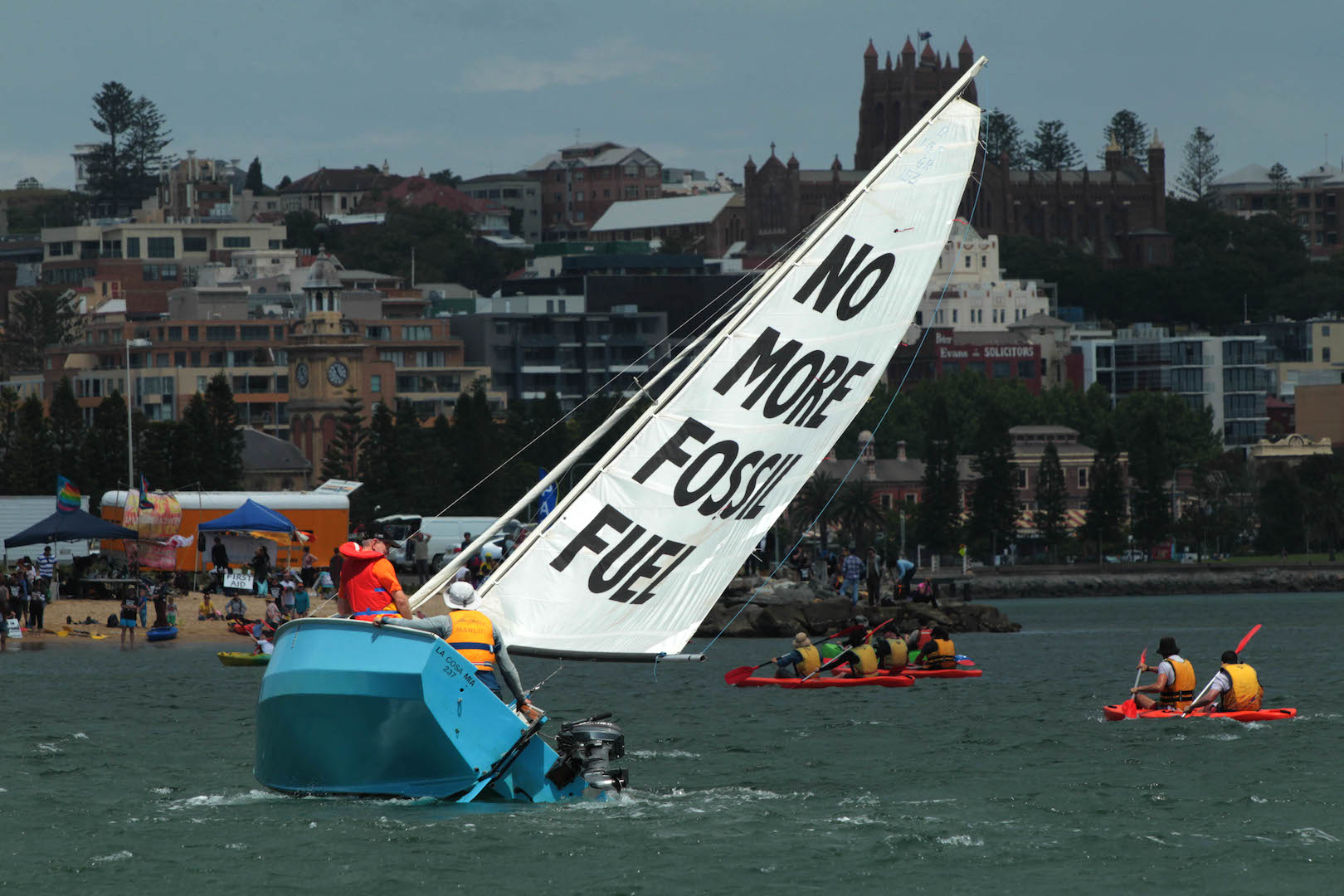
Photograph shows scenes from Newcastle Harbour where representatives from 12 Pacific Island nations came to raise awareness of climate change by blockading the movements of coal ships. Used with Permission. Photograph by Dean Sewell/Oculi for 350.org. Friday, 17 October 2014.
This article was written by Aaron Packard for 350.org, an organization building a global climate movement, and is republished on Global Voices as part of a content-sharing agreement.
350.org's Pacific climate warriors paddled out into the Port of Newcastle, followed by hundreds of Australians and came head to head with gigantic coal ships on 17 October. It truly was David versus Goliath.
The courage of the warriors was on full display as they faced off with the fossil fuel industry, which is threatening their homes. Using hand carved canoes, they, along with dozens of Australians in kayaks, were able to prevent 10 scheduled ships from passing through the Newcastle coal port. But most importantly, the warriors stood tall and their message was heard loud and clear: they are not drowning, they are fighting.
As the warriors continue their journey, help us tell their courageous story — share their story with your friends. They will continue to fight, but they can not do it alone.
Here’s how it looked:

Photograph shows scenes from Newcastle Harbour where representatives from 12 Pacific Island nations came to raise awareness of climate change by blockading the movements of coal ships. Used with Permission. Photograph by Jeff Tan for 350.org. Friday, 17 October 2014.

Photograph shows scenes from Newcastle Harbour where representatives from 12 Pacific Island nations came to raise awareness on climate change by blockading the movements of coal ships. Used with Permission. Photographs by Dean Sewell/Oculi for 350.org. Friday, 17 October 2014.

Photograph shows scenes from Newcastle Harbour where representatives from 12 Pacific Island nations came to raise awareness on climate change by blockading the movements of coal ships. Photograph by Jeff Tan for 350.org. Friday, 17 October 2014.

Photograph shows scenes from Newcastle Harbour where representatives from 12 Pacific Island nations came to raise awareness on climate change by blockading the movements of coal ships. Used with Permission. Photographs by Dean Sewell/Oculi for 350.org. Friday, 17 October 2014.






